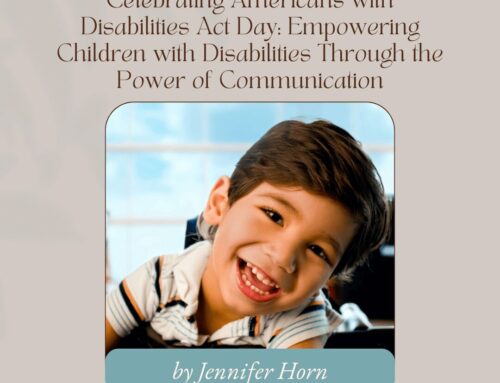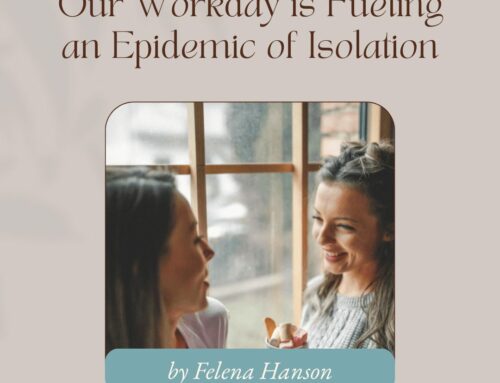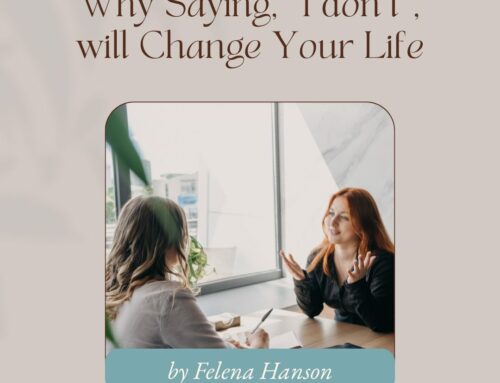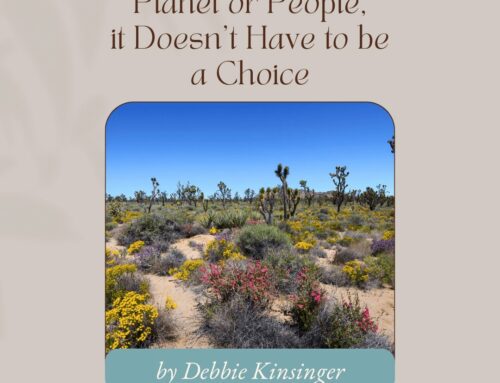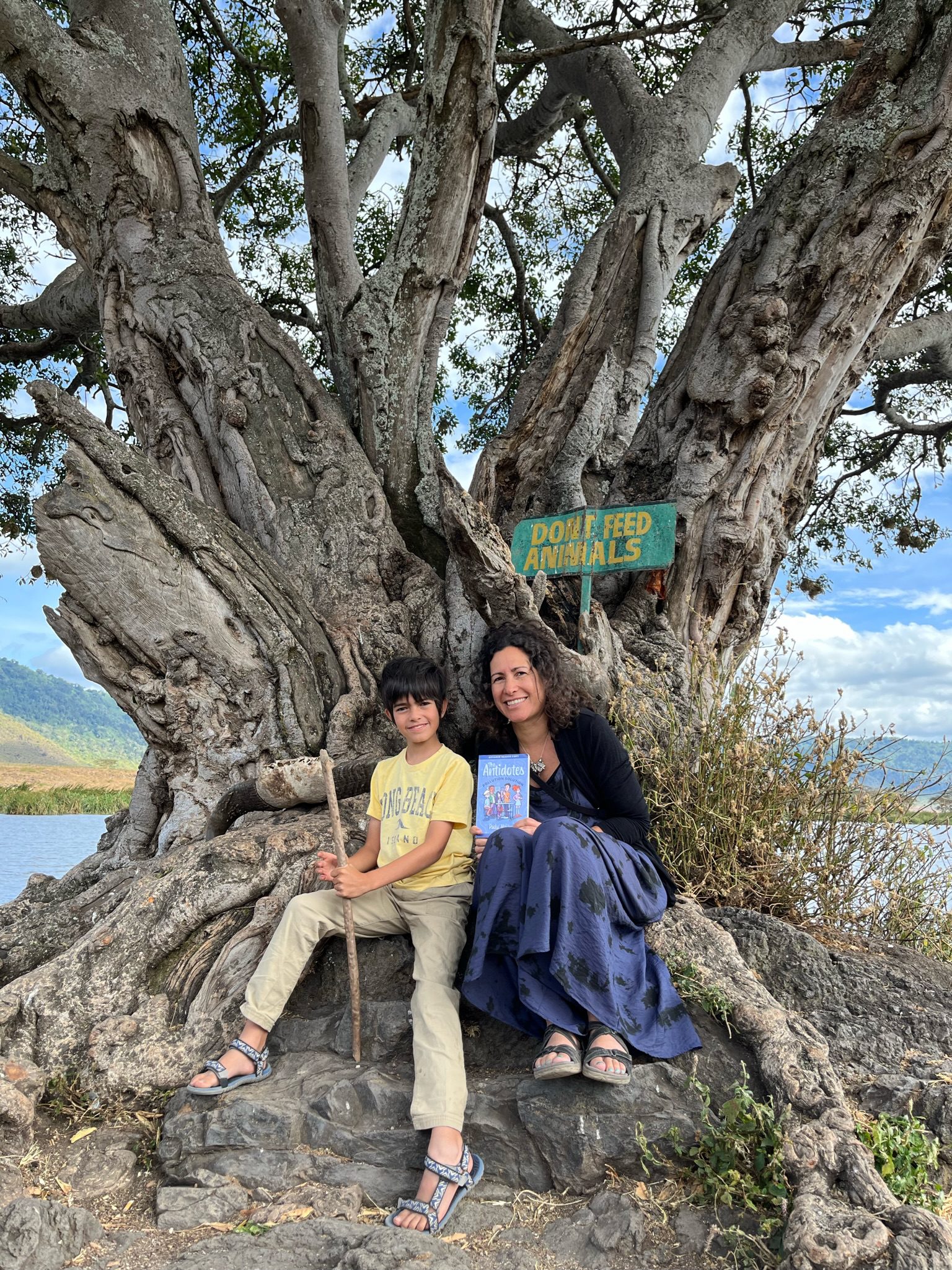 In 2021 at the start of the global Covid-19 pandemic, my son (who was 7 at the time) and I began working on a creative project – a story about a group of 5th graders who upon the failure of grown-ups took it upon themselves to stop a future pandemic before it started. As a public health professional, I wanted to focus on a fictional health condition that highlighted the fluidity in diseases that infect animals and humans as more and more of what we are experiencing in real life is situated in this intersection like Covid-19, which started with bats and then wreaked havoc on humans. In the end, we settled on a plastic-eating bacteria experiment gone wrong that makes fish and kids sick to serve as the underlying premise of a STEM-inspired fiction novel, The Antidotes: Pollution Solution, to inspire young people and the grown-ups who care for them to take a more active role in planetary and human health.
In 2021 at the start of the global Covid-19 pandemic, my son (who was 7 at the time) and I began working on a creative project – a story about a group of 5th graders who upon the failure of grown-ups took it upon themselves to stop a future pandemic before it started. As a public health professional, I wanted to focus on a fictional health condition that highlighted the fluidity in diseases that infect animals and humans as more and more of what we are experiencing in real life is situated in this intersection like Covid-19, which started with bats and then wreaked havoc on humans. In the end, we settled on a plastic-eating bacteria experiment gone wrong that makes fish and kids sick to serve as the underlying premise of a STEM-inspired fiction novel, The Antidotes: Pollution Solution, to inspire young people and the grown-ups who care for them to take a more active role in planetary and human health.
As I dug into my research, I was unprepared for what I would discover in terms of how long it takes to decompose many of the products that I use once and toss and the extent to which recycling programs create misaligned incentives for people to use single-use plastics with the misconception that they will be transformed into other products. According to a Greenpeace Report, only 5-6% of plastic waste is actually recycled. This plastic ends up in landfills, trash barges, and oceans. It is then mistaken for food and consumed by marine life, and microplastics infiltrate our water and food and are consumed by humans.
Single Use Plastics or “SUPs” as, Gir one of the main characters in The Antidotes likes to call them, are used for brief periods, often a matter of minutes, and take tens or hundreds of years to decompose. The three that captured my attention are plastic water bottles, which take 250 years to decompose; plastic straws, which take 200 years to decompose; and plastic cups, which take a whopping 400 years to decompose. And in honor of National Plastic Bag Free Day – July 3, 2023- it takes 25 years to decompose a single plastic bag and approximately 500 billion plastic bags are used globally each year. Sea turtles mistake plastic bags for jellyfish and consume them. Countries like Kenya have instituted complete plastic bag bans with others instituting partial bans and/or charging money for plastic bags.
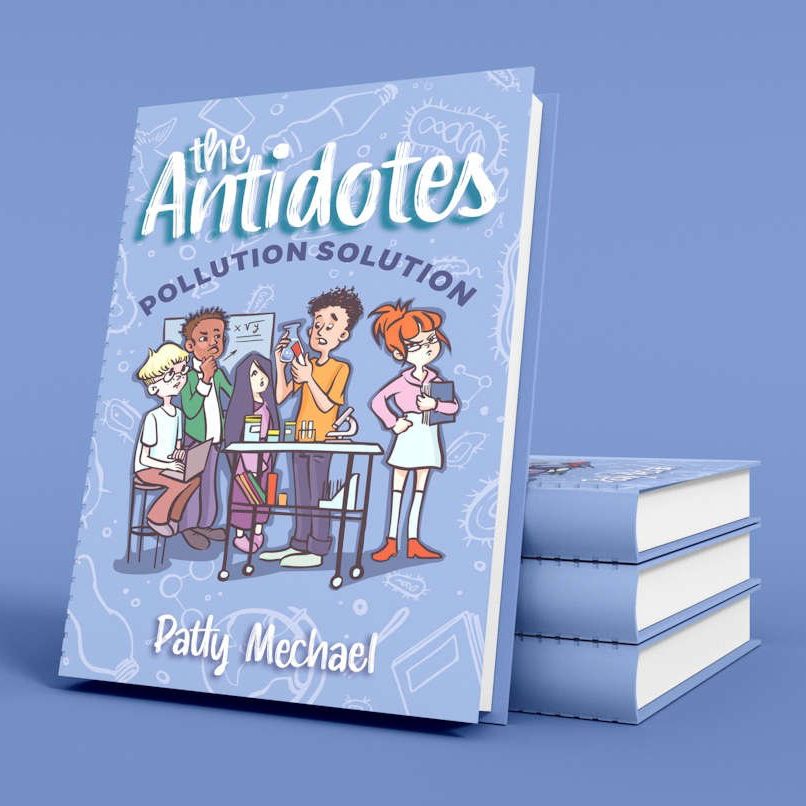 At the end of the book, we provide a Call to Action, A Zero-plastic Challenge, that young people can undertake on their own and in collaboration with their families and school communities. Earlier this year my friend, Sarah, and I took the Challenge. And oh, what an eye-opening experience that was! I learned a lot about my plastic consumption and waste. Each week, we collected all our plastic and met up over Zoom to discuss where and how we could cut back on our plastic use. We created a series of videos called Trash Talk with highlights of our weekly journey and posted them on Instagram – @theantidotesseries.
At the end of the book, we provide a Call to Action, A Zero-plastic Challenge, that young people can undertake on their own and in collaboration with their families and school communities. Earlier this year my friend, Sarah, and I took the Challenge. And oh, what an eye-opening experience that was! I learned a lot about my plastic consumption and waste. Each week, we collected all our plastic and met up over Zoom to discuss where and how we could cut back on our plastic use. We created a series of videos called Trash Talk with highlights of our weekly journey and posted them on Instagram – @theantidotesseries.
I kept my plastic waste on the kitchen counter so that I could see it pile up and get a clear sense of what I used most frequently. It was horrifying to see how much I accumulated – even though I had already taken proactive action to reduce my plastic consumption. Each week, we counted the number of pieces, analyzed the types of plastic waste, and even weighed it. What we learned is that it’s incredibly hard to get to zero! We both were able to shift the types of plastic waste we generate to reduce volume and weight. We also identified our persistent plastic waste culprits- for me it was sushi containers and poop bags. But it was near impossible to get to zero. To do that, we will need more companies (food, cosmetics, shipping, etc.) to transition to plastic-free packaging and to add an extra “R” to Reduce, Reuse, and Recycle – Refuse. Where possible, we all need to refuse to buy or take plastic products.
I’m using much less plastic in my day-to-day life by refusing to take plastic cups, plastic bags, plastic straws, and plastic water bottles. You can, too! You can also advocate for your schools, towns, and countries to ban plastic bags and other SUPs.
If you care about engaging young people in STEM-inspired planetary and public health, please join The Antidotes Community monthly newsletter, read The Antidotes: Pollution Solution with your families and schools, and join the Plastic-free July Movement. Share your highs and lows in getting to zero-plastic waste on Instagram @theantidotesseries and by using #TheAntidotes.
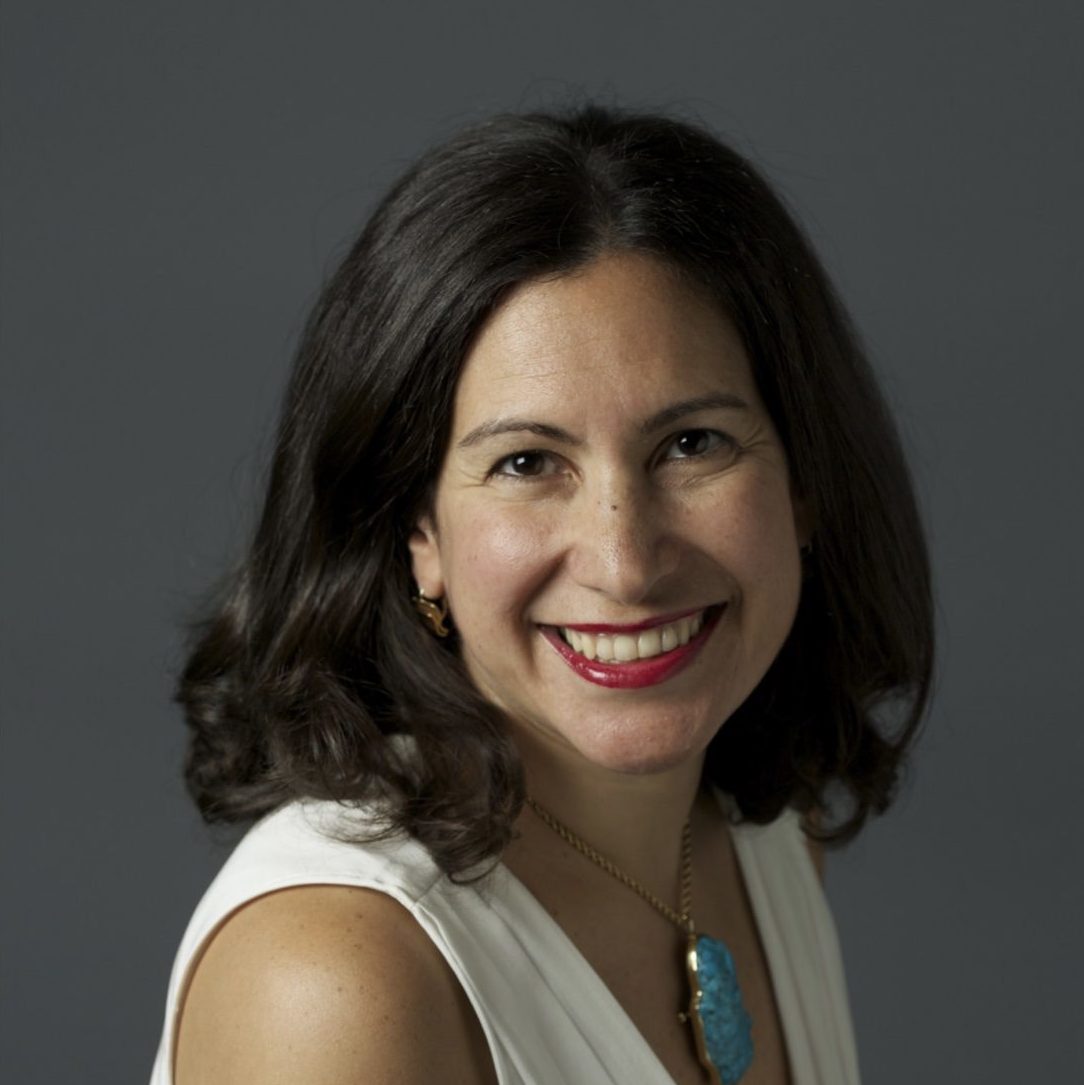 Internationally recognized digital health specialist, Dr. Patricia (Patty) Mechael, brings three decades of groundbreaking work to her role as an author, mother, and public health advocate. Patty channels her passion for technology, innovation, science, women’s rights, and the environment into inspiring and educative writings. In addition to her role as co-founder and policy lead at HealthEnabled, she is also a Senior Associate at the Center for Global Digital Health Innovation at the Johns Hopkins Bloomberg School of Public Health. Patty’s contributions to academia and global health policy are noteworthy. She developed curricula and taught at institutions such as Columbia University, Princeton University, and Johns Hopkins University. As the author of over 100 scientific and health journal publications and several books, including “The Antidotes,” Patty’s extensive experience in public health and policy continues to inspire and drive change.
Internationally recognized digital health specialist, Dr. Patricia (Patty) Mechael, brings three decades of groundbreaking work to her role as an author, mother, and public health advocate. Patty channels her passion for technology, innovation, science, women’s rights, and the environment into inspiring and educative writings. In addition to her role as co-founder and policy lead at HealthEnabled, she is also a Senior Associate at the Center for Global Digital Health Innovation at the Johns Hopkins Bloomberg School of Public Health. Patty’s contributions to academia and global health policy are noteworthy. She developed curricula and taught at institutions such as Columbia University, Princeton University, and Johns Hopkins University. As the author of over 100 scientific and health journal publications and several books, including “The Antidotes,” Patty’s extensive experience in public health and policy continues to inspire and drive change.

